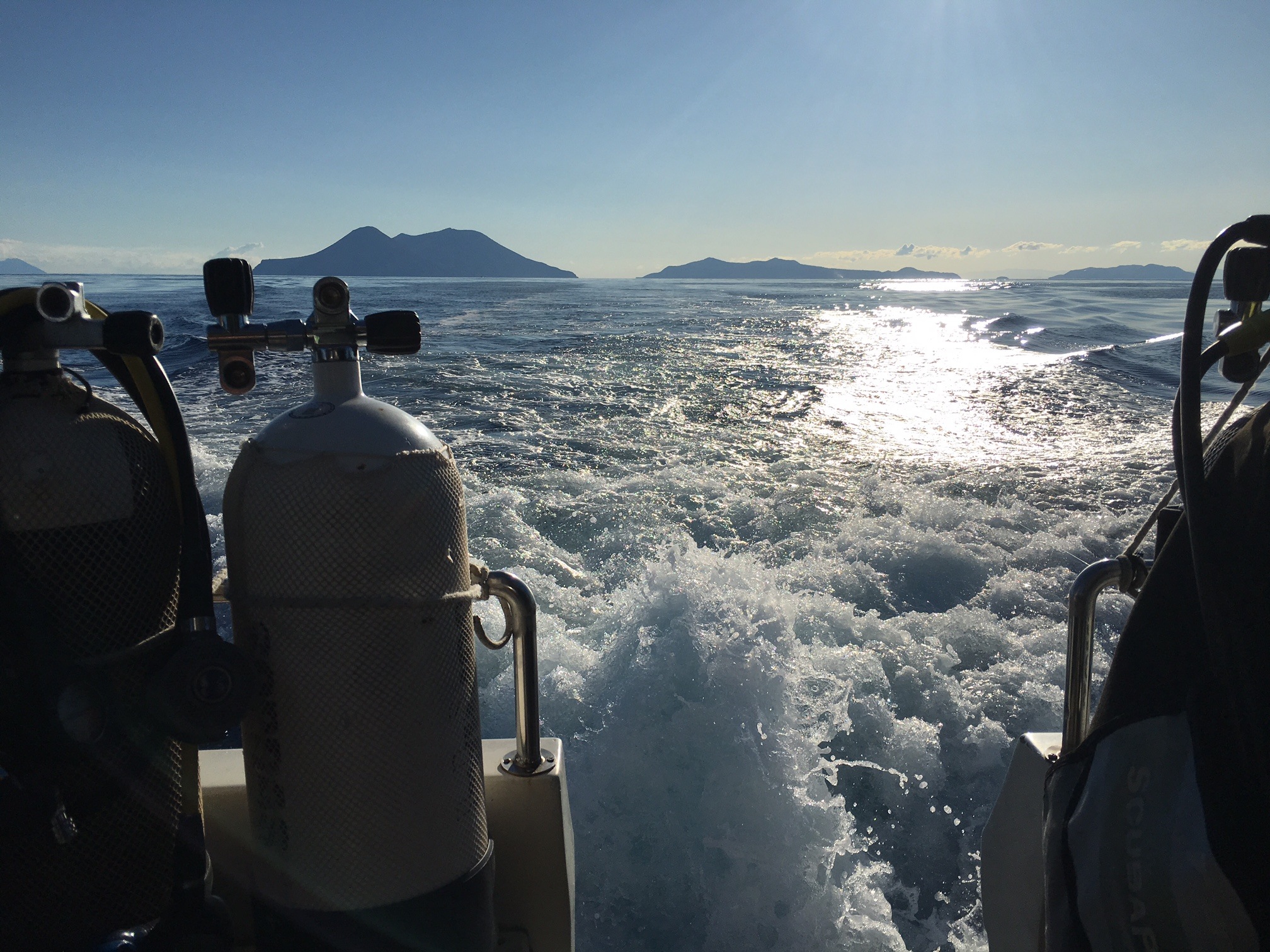
Diving in DSV Alvin on the East Pacific Rise
Read about our ongoing Biofilms4Larvae project and watch the trailer of our new documentary film.

Read about our ongoing Biofilms4Larvae project and watch the trailer of our new documentary film.

Read about our ongoing study of the shallow-water gas vents located in the Tyrrhenian Sea, Italy and watch our GoPro video.

Read about our ongoing study of the Aeolian islands, Italy and watch our GoPro video.

Read about our expedition to the shallow-water hydrothermal vents of Milos Island, Greece.

Diving to the bottom of the ocean with Nautile : MESCAL-1 and MESCAL-2 oceanographic expeditions

Life at sea on the research vessel Atlantis. Watch the GoPro video of the 2014 oceanographic expedition.
Research in my laboratory is focused on the physiology, ecology and evolutionary history of prokaryotes that inhabit marine hydrothermal environments. The overarching objective of my research revolves on the question: “how did microbial metabolism co-evolve along with our planet?” Extant thermophilic, anaerobic, chemolithoautotrophic Bacteria and Archaea that conserve energy and fix carbon using inorganic compounds associated with volcanic activity (e.g., H2, H2S, S0 and CO2) are completely disconnected from photosynthetic processes. While these deep-branching anaerobic thermophiles are modern organisms that co-evolved with our planet, they inhabit deep-sea hydrothermal vents and other geothermal habitats that can be considered relic environments similar to the early Earth. Hence, these microorganisms carry both ancestral and more recently acquired traits (genes and enzymes) and can be used as models to reconstruct early metabolism. To this end, in my laboratory we devote a considerable effort to “domesticate” some of the most fascinating organisms on our planet, and to use them as models to understand the evolution of early metabolism and the adaptations to environments that resemble the early Earth. I believe that there is no better way to get to know microorganisms “up close and personal” than growing them in the laboratory; the Deep-Sea Microbiology Lab culture collection currently includes over 400 pure cultures isolated from marine environments. After years devoted to isolating microorganisms from geothermal environments and studying their physiology, sequencing their genomes to infer metabolic pathways, formulate hypotheses and test them experimentally, and probing natural microbial communities using culture-independent approaches, new, exciting research avenues are opening up (link to projects).